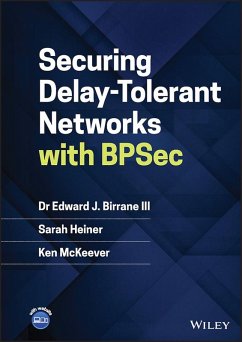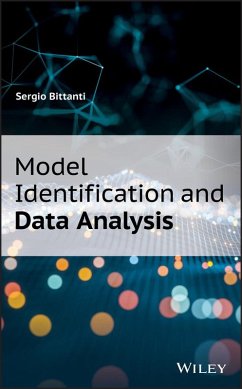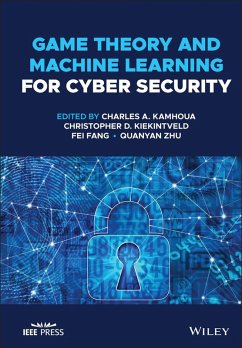
SCADA Security (eBook, ePUB)
Machine Learning Concepts for Intrusion Detection and Prevention
Versandkostenfrei!
Sofort per Download lieferbar
108,99 €
inkl. MwSt.
Weitere Ausgaben:

PAYBACK Punkte
0 °P sammeln!
Examines the design and use of Intrusion Detection Systems (IDS) to secure Supervisory Control and Data Acquisition (SCADA) systems Cyber-attacks on SCADA systems--the control system architecture that uses computers, networked data communications, and graphical user interfaces for high-level process supervisory management--can lead to costly financial consequences or even result in loss of life. Minimizing potential risks and responding to malicious actions requires innovative approaches for monitoring SCADA systems and protecting them from targeted attacks. SCADA Security: Machine Learning Co...
Examines the design and use of Intrusion Detection Systems (IDS) to secure Supervisory Control and Data Acquisition (SCADA) systems Cyber-attacks on SCADA systems--the control system architecture that uses computers, networked data communications, and graphical user interfaces for high-level process supervisory management--can lead to costly financial consequences or even result in loss of life. Minimizing potential risks and responding to malicious actions requires innovative approaches for monitoring SCADA systems and protecting them from targeted attacks. SCADA Security: Machine Learning Concepts for Intrusion Detection and Prevention is designed to help security and networking professionals develop and deploy accurate and effective Intrusion Detection Systems (IDS) for SCADA systems that leverage autonomous machine learning. Providing expert insights, practical advice, and up-to-date coverage of developments in SCADA security, this authoritative guide presents a new approach for efficient unsupervised IDS driven by SCADA-specific data. Organized into eight in-depth chapters, the text first discusses how traditional IT attacks can also be possible against SCADA, and describes essential SCADA concepts, systems, architectures, and main components. Following chapters introduce various SCADA security frameworks and approaches, including evaluating security with virtualization-based SCADAVT, using SDAD to extract proximity-based detection, finding a global and efficient anomaly threshold with GATUD, and more. This important book: * Provides diverse perspectives on establishing an efficient IDS approach that can be implemented in SCADA systems * Describes the relationship between main components and three generations of SCADA systems * Explains the classification of a SCADA IDS based on its architecture and implementation * Surveys the current literature in the field and suggests possible directions for future research SCADA Security: Machine Learning Concepts for Intrusion Detection and Prevention is a must-read for all SCADA security and networking researchers, engineers, system architects, developers, managers, lecturers, and other SCADA security industry practitioners.
Dieser Download kann aus rechtlichen Gründen nur mit Rechnungsadresse in A, B, BG, CY, CZ, D, DK, EW, E, FIN, F, GR, HR, H, IRL, I, LT, L, LR, M, NL, PL, P, R, S, SLO, SK ausgeliefert werden.













